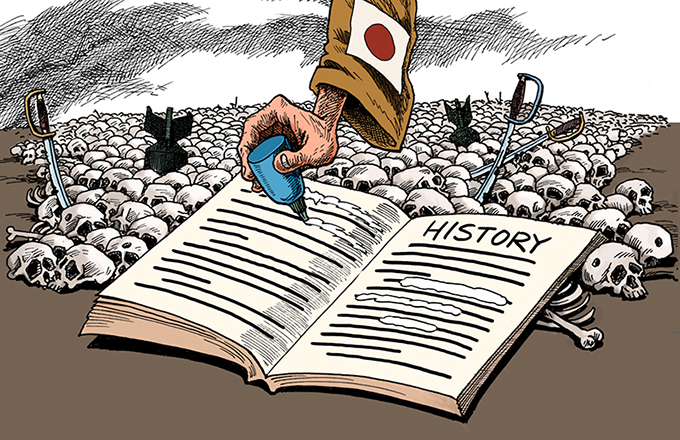Top UK military brass mired in Japan's anti-China propaganda scandal: report
A former head of the British Royal Navy and one of the best known British army chiefs had been unwittingly dragged into an anti-China campaign by a London think tank being paid by the Japanese government, it was reported Sunday.
Admiral Lord West, former first sea lord and chief of all British Royal Navy staff, and Colonel Bob Stewart, former British army officer, were both used in the war of words organized by the think tank, the Henry Jackson Society (HJS), the London-based Sunday Times newspaper reported.
The newspaper reported a week earlier that the Japanese embassy in London was paying HJS a reported 10,000 pounds a month to run an anti-China propaganda campaign.
Neither the Japanese embassy nor HJS have denied the arrangement.
The report claimed that West, who served as a security minister in the former Labor government, was recruited by the think tank to publicly oppose China.
West was asked by HJS to put his name to an article published on a political website last July which attacked China's maritime claims over the South China Sea.
The report said West was not being informed that HJS was being paid by the Japanese government.
This weekend West, who is said to serve on HJS's advisory council, attacked the think-tank for touting his name, saying he would not have put his name to the article if he had known Japan was funding the HJS.
"I was certainly not aware that HJS was funded by the Japanese," he was quoted as saying by the newspaper.
The report also revealed that Stewart, who served as a UN commander in Bosnia and Herzegovina (BiH), was also unaware of HJS's paymasters when he put his name to an article critical of China that had used HJS's research. Stewart currently serves as a Conservative member of parliament (MP).
The Sunday Times said the media campaign reflects growing tensions between Japan and China. Its report added that last week HJS had been forced to apologize publicly to another British politician, former foreign secretary Sir Malcolm Rifkind for not informing him of its deal with the Japanese embassy.
It said Rifkind had been encouraged by HJS to voice opposition to the Chinese foreign policy. HJS had sought Rifkind's name for an article in the respected broadsheet London newspaper, the Daily Telegraph, expressing concerns about China's involvement in the Hinkley Point nuclear plant project. The project, with China's involvement, has been approved and welcomed by Prime Minister Theresa May.
The Sunday Times said HJS had refused to say whether it would issue the two former military men, named in Sunday's report, public apologies.
Since the disclosure of the allegations, the Japanese government, media as well as the embassy in London have chosen to remain silent.

























